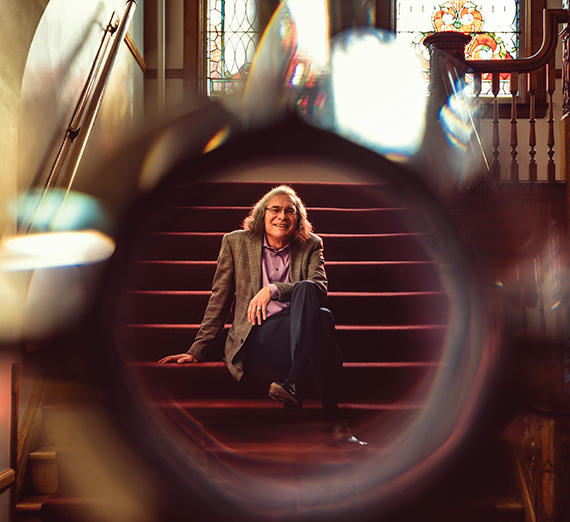Walking a Spiritual Path toward Inclusion, Equity

By Raymond Reyes, Associate Academic Vice President & Chief Diversity Officer
Following is an excerpt of an article originally published in September 2017 for Spirit, the Gonzaga faculty and staff newsletter, and published in the Winter 2018 edition of Gonzaga Magazine as published here. Dr. Reyes, who has been part of the fabric of Gonzaga for 30 years, conveys much of the tension and the passion occurring on campus today surrounding the issues of diversity, equity and inclusion.
In another place, in another time, i.e., the Isle of Wright, August 1970, during a concert one month before his death, Jimi Hendrix remarked between songs that “We live in a room full of mirrors.” Perhaps the man with singing fingers was summoning an observation made by Fritz Perls, the father of Gestalt Therapy, when he noted that in cultural relationships we enter a matrix that invites the potential experience of “through the face of another, I am.” A Hawaiian elder once told me that Hendrix may have been referencing the notion that “you spot it, you got it.” Here is what I see reflecting back to me and what I hope I know as I begin my 30th year at Gonzaga.
In my rear-view mirror resides an image from May 5, 2017, when a group of students produced and disseminated a YouTube video entitled “Where Were You When.” It is a group of students giving voice to their GU experience that reflects back to all of us how they describe the gap between rhetoric and reality as it pertains to issues of inclusion, equity and intercultural awareness. In front of me I see the reflection of a new academic year bringing forth a constellation of new images with 1,257 new students becoming part of a student body just south of 8,000 being served by a workforce of approximately 1,440 staff, faculty and administrators. Imagine this: Each student, staff, faculty and administrator embodies a cultural world unto themselves.
I see the image of St. Ignatius of Loyola manifesting in the faces of our students.
Ignatius has been characterized as a “practical visionary.” I see the impeccable ability to fly kites (the idealism of youth) dancing with the compelling need to drive nails (the realism of adult initiation) sitting in our classrooms, resident halls and prayerful spaces. Let me challenge you with a dose of idealism to manifest into reality.
I would like to see us experience the spiritual significance of human diversity by linking practices of inclusion, equity and intercultural awareness to our educational mission as a Jesuit social apostolate. One of the hallmarks of Jesuit education, based upon Ignatian spirituality, is the belief that God can be found in all things because the world is saturated with divine presence. He describes a cultural reality wherein every moment of our life God is communicating to us through person, place and thing. The Composer of Grace and Keeper of Promises is constantly trying to draw us into an awareness of the reality of who we are through His eyes and our experience of “the other.”
I would like to challenge all of us to raise our awareness of the “active presence of God” in all our intercultural relationships. Can you see the other through God’s eyes?
Where there is a will, there is a way. Will a College Democrat see a College Republican through God’s eyes and vice versa? Will a heterosexual staff or faculty see a gay, lesbian, transgender or questioning staff or faculty through God’s eyes and vice versa? Will a Christian staff see a Muslim student through God’s eyes? Will an able bodied student, faculty or staff see a physically challenged student, faculty or staff through God’s eyes? These are questions with potential answers inviting us to close the gap between the promise and the practice of culturally inclusive teaching, or recruiting and retaining a diverse workforce, or creating a safe, supportive campus climate for everyone.
The spirit of a Zag, the soul of a Bulldog is nurtured by the invitation to become a contemplative in action. At Gonzaga, in every moment of our community life as students, faculty, staff and administrators, we are invited to be alert and vigilant to God’s presence in all our relationships.
We are blessed with the choice to use this awareness of our intercultural relationships for a greater good by actively addressing issues of social justice as it pertains to exclusion, oppression or marginalization.
I sincerely hope that all of us will look in the mirror, see a practical visionary reflecting back, and act upon the image of this likeness. Let us act and form collaborative partnerships in solidarity toward creating a sustainable campus climate characterized by empathetic caring and respect for the dignity of all our intercultural relatives.
In the Spirit of Our Ancestors, May the Blessings Be!
